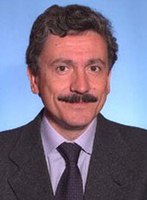| Portrait | Office | Name | Term | Party | Undersecretaries |
|---|
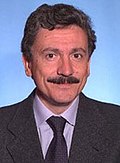 | Prime Minister | Massimo D'Alema | 22 December 1999 – 26 April 2000 | | Democrats of the Left | Enrico Luigi Micheli (PPI)
Marco Minniti (DS) [a]
Stefano Passigli (DS) [b]
|
|
|---|
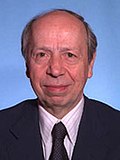 | Minister of Foreign Affairs | Lamberto Dini | 22 December 1999 – 26 April 2000 | | Italian Renewal | Franco Danieli (DEM)
Umberto Ranieri (DS)
Rino Serri (DS)
Aniello Palumbo (PPI)
(since 30 December 1999) |
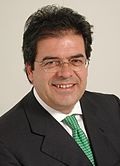 | Minister of the Interior | Enzo Bianco | 22 December 1999 – 26 April 2000 | | The Democrats | Franco Barberi (Ind.)
Massimo Brutti (DS)
Ombretta Fumagalli Carulli (RI)
Severino Lavagnini (PPI)
Alberto Maritati (DS) |
 | Minister of Grace and Justice | Oliviero Diliberto | 22 December 1999 – 26 April 2000 | | Party of Italian Communists | Giuseppe Ayala (DS)
Franco Corleone (FdV)
Marianna Li Calzi (RI)
Rocco Maggi (DEM) |
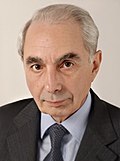 | Minister of Treasury, Budget and Economic Planning | Giuliano Amato | 22 December 1999 – 26 April 2000 | | Independent | Ferdinando De Franciscis (PPI)
Dino Piero Giarda (Ind.)
Giorgio Macciotta (DS)
Roberto Pinza (PPI)
(until 30 December 1999)
Bruno Solaroli (DS) |
 | Minister of Finance | Vincenzo Visco | 22 December 1999 – 26 April 2000 | | Democrats of the Left | Natale D'Amico (RI)
Alfiero Grandi (DS)
Mauro Fabris (UDEUR)
(until 30 December 1999)
Armando Veneto (PPI)
(since 30 December 1999) |
 | Minister of Defense | Sergio Mattarella | 22 December 1999 – 26 April 2000 | | Italian People's Party | Paolo Guerrini (PdCI)
Romano Misserville (UDEUR)
(until 30 December 1999)
Roberto Pinza (PPI)
(since 30 December 1999)
Gianni Rivera (DEM)
Massimo Ostillio (UDEUR) |
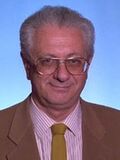 | Minister of Public Education | Luigi Berlinguer | 22 December 1999 – 26 April 2000 | | Democrats of the Left | Giuseppe Gambale (DEM)
Nadia Masini (DS)
Giovanni Polidoro (PPI)
Carla Rocchi (FdV) |
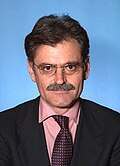 | Minister of Public Works | Willer Bordon | 22 December 1999 – 26 April 2000 | | The Democrats | Antonio Bargone (Ind.)
Mauro Fabris (UDEUR)
(since 30 December 1999)
Armando Veneto (PPI)
(until 30 December 1999)
Gianni Francesco Mattioli (FdV)
Salvatore Ladu (PPI) |
 | Minister of Agricultural and Forestry Policies | Paolo De Castro | 22 December 1999 – 26 April 2000 | | The Democrats | Roberto Borroni (DS)
Aniello Di Nardo (DEM) |
 | Minister of Transport and Navigation | Pier Luigi Bersani | 22 December 1999 – 26 April 2000 | | Democrats of the Left | Giordano Angelini (DS)
Luca Danese (UDEUR)
Mario Occhipinti (DEM) |
 | Minister of Communications | Salvatore Cardinale | 22 December 1999 – 26 April 2000 | | Union of Democrats for Europe | Vincenzo Maria Vita (DS)
Michele Lauria (PPI) |
 | Minister of Industry, Commerce and Craftsmanship | Enrico Letta | 22 December 1999 – 26 April 2000 | | Italian People's Party | Gabriele Cimadoro (DEM)
Lanfranco Turci (DS)
Gianfranco Morgando (PPI)
(since 30 December 1999)
Aniello Palumbo (PPI)
(until 30 December 1999) |
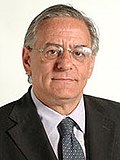 | Minister of Labour and Social Security | Cesare Salvi | 22 December 1999 – 26 April 2000 | | Democrats of the Left | Claudio Caron (PdCI)
Adolfo Manis (RI)
Raffaele Morese (Ind.)
Rosario Olivo (DS) |
 | Minister of Foreign Trade | Piero Fassino | 22 December 1999 – 26 April 2000 | | Democrats of the Left | Silvia Barbieri (DS)
Gianfranco Morgando (PPI)
(until 30 December 1999) |
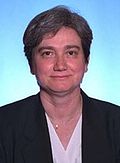 | Minister of Health | Rosy Bindi | 22 December 1999 – 26 April 2000 | | Italian People's Party | Monica Bettoni Brandani (DS)
Fabio Di Capua (DS)
Antonino Mangiacavallo (RI) |
 | Minister of Cultural Heritage and Activities | Giovanna Melandri | 22 December 1999 – 26 April 2000 | | Democrats of the Left | Giampaolo D'Andrea (PPI)
Maretta Scoca (UDEUR)
Adriana Vigneri (DS)
(until 30 December 1999) |
 | Minister of the Environment | Edo Ronchi | 22 December 1999 – 26 April 2000 | | Federation of the Greens | Valerio Calzolaio (DS)
Nicola Fusillo (PPI) |
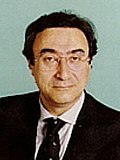 | Minister of University, Scientific Research and Technology | Ortensio Zecchino | 22 December 1999 – 26 April 2000 | | Italian People's Party | Antonino Cuffaro (PdCI)
Luciano Guerzoni (DS)
Vincenzo Sica (DEM) |
|
|---|
 | Minister for Institutional Reforms
(without portfolio) | Antonio Maccanico | 22 December 1999 – 26 April 2000 | | The Democrats | Dario Franceschini (PPI) |
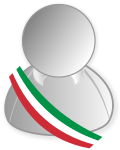 | Minister for Equal Opportunities
(without portfolio) | Laura Balbo | 22 December 1999 – 26 April 2000 | | Federation of the Greens | |
 | Minister of Regional Affairs
(without portfolio) | Katia Bellillo | 22 December 1999 – 26 April 2000 | | Party of Italian Communists | Luciano Caveri (UV) |
 | Minister for Parliamentary Relations
(without portfolio) | Agazio Loiero | 22 December 1999 – 26 April 2000 | | Union of Democrats for Europe | Elena Montecchi (DS) |
 | Minister of Public Function
(without portfolio) | Franco Bassanini | 22 December 1999 – 26 April 2000 | | Democrats of the Left | Raffaele Cananzi (PPI)
Adriana Vigneri (DS)
(since 30 December 1999) |
 | Minister of Social Solidarity
(without portfolio) | Livia Turco | 22 December 1999 – 26 April 2000 | | Democrats of the Left | |
 | Minister of Community Policies
(without portfolio) | Patrizia Toia | 22 December 1999 – 26 April 2000 | | Italian People's Party | |
